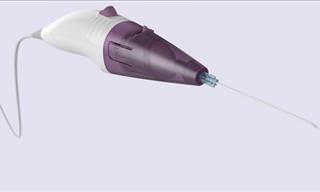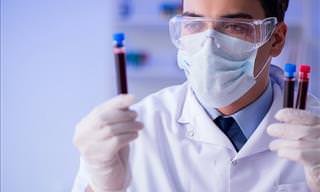It is now well-known that if cancer is detected early, it may help save the lives of millions who suffer from this disease. In fact, doctors everywhere stress the fact that early cancer detection may certainly increase the patient’s chances of survival. Hence, the latest development on this front is always extremely encouraging. An international team of scientists has developed a blood test that can help detect five common types of cancer four years before symptoms appear.
Called PanSeer, the test can detect cancers of the stomach, as well as esophageal, colorectal, lung, and liver cancers. The most crucial part of the test is that it can spot the disease up to four years before conventional diagnosis methods, like imaging tests or biopsies.
The findings, which were published in the journal Nature Communications, could be a significant and revolutionary breakthrough and could help identify those at high risk of developing cancer.
“The ultimate goal would be performing blood tests like this routinely during annual health checkups,” said Kun Zhang, one of the paper’s corresponding authors and professor and chair of the Department of Bioengineering at the University of California San Diego. “But the immediate focus is to test people at higher risk, based on family history, age, or other known risk factors.”
A non-invasive blood-test system
The authors analyzed plasma samples from 605 individuals who did not show any symptoms of the disease. 191 of these people were later diagnosed with cancer. The team then also profiled plasma samples from 223 diagnosed cancer patients along with 200 primary tumor and normal tissue samples.
The experimental blood test developed by the team has been able to detect cancer in a whopping 95 percent of the participants who were asymptomatic when the samples were collected. However, they were only diagnosed with the disease later. Furthermore, the test also accurately detected cancer in 88 percent of the samples from 113 patients who were already diagnosed with five common types of the disease.
This is quite extraordinary, indeed. "What we showed is: up to four years before these people walk into the hospital, there are already signatures in their blood that show they have cancer,” added Zhang.
The samples have been collected as part of a 10-year longitudinal study launched in 2007 by Fudan University in China. The technique of this unique test comprises of detecting the revealing cancer signs based on very small levels of tumor DNA circulating in the blood. According to the researchers, these tests show that cancer can be non-invasively detected up to four years before the present standard of care.
How successful this test, which is still in its experimental phases, goes on to become will be known in a few years.
A new step in the battle against cancer?
This isn't the first blood test that has been developed to detect cancer. In recent years, various scientific studies have offered different ways to screen patients without the need for surgery. Back in 2018, a similar type of blood test was being developed for the early detection of lung cancer. Recently, another blood test study promised to catch over 50 types of cancers.
However, the researchers of PanSeer claim that their work is unique because they had blood samples from asymptomatic patients. This allowed them to set up a test that “can find cancer markers much earlier than conventional diagnosis methods”.
That being said, the team did say that further large-scale studies would be required to verify the potential of the test for the early detection of cancer in people who haven’t been diagnosed. Moreover, they don’t want to give out the impression that the blood test will help catch cancer in people who may later go on to develop it.
Their primary goal is to use this test to identify people who already have cancerous growths that aren't able to be identified using current methods of detection. Ultimately, if the test can indeed do what it has demonstrated so far, it can be a huge step in mankind’s fight against cancer.
Share this post with those interested in science and health...
 Go to BabaMail
Go to BabaMail

























































